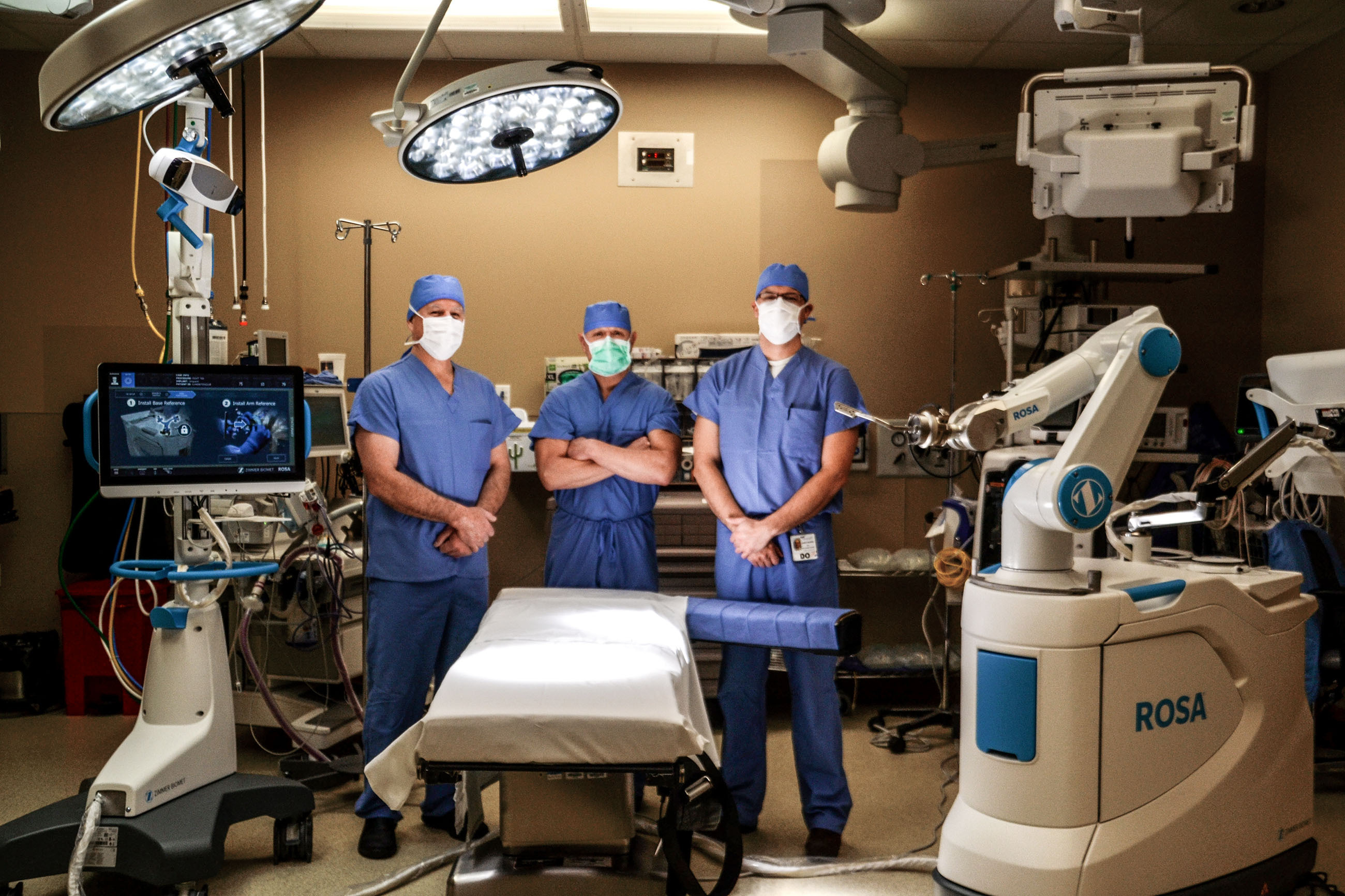A pair of certifications, one each for total hip and total knee replacements, assure Knox Community Hospital offers premium care for both osteoarthritic conditions.
KCH first earned the Joint Commission’s Gold Seal of Approval in 2016, according to the hospital’s website, and retains them to this day after passing inspection every two years. The most recent recertification was Sept. 30, 2021, the program’s third renewal.
“We are pleased to present to the community this affirmation of the level of excellence and expertise in providing joint replacement orthopedic care for the community at Knox Community Hospital for our total hip and total knee joint replacement services,” said Dr. Kenneth Doolittle, an orthopedic surgeon.
“We have an excellent program here at Knox Community Hospital,” said Alyson L. Pratt, BSN, RN, director of the hospital’s specialty programming department. “Knowledge about our program is helping people seek treatment sooner.”
She oversees the certifications for orthopedic joint replacement and several other service lines at the hospital.
Patients typically visit a doctor when their symptoms interfere with daily life.
“Osteoarthritis, rheumatoid arthritis, and avascular necrosis are some of the conditions that cause the pain, swelling and decreased range of motion that interrupt a patient’s ability to participate in their everyday life and activities. This is also the point when most patients seek help with our orthopedic surgeons,” Pratt told the Mount Vernon News.
Underlying conditions can cause the joint to deteriorate.
“Some can be just age-related,” Pratt said. “Some can be sports injuries if the patient is younger. It's individual, based on the person.”
A few tests, primarily based on a physical exam and imaging (X-rays, MRIs) of the affected joint are the first step toward treatment. Sometimes physical therapy might be prescribed before surgery is indicated.
“They can try [physical therapy] preoperatively, but most of the time surgery is indicated,” she said. “All of our patients after surgery will most certainly get physical therapy, whether it be with home health or outpatient physical therapy."
Therapy starts almost immediately after surgery at the hospital with KCH’s physical and occupational therapists.
Water aerobics are sometimes prescribed postoperatively, Pratt said, because they are a low-impact exercise that can help the joint heal.
KCH offers a class for all potential joint replacement patients. This class educates patients regarding ensuring the home is safe after surgery, how to use a walker, options for therapy, insurance coverages and many other topics related to their overall well-being before and after their total joint replacement surgery.
“It's a very thorough class,” Pratt said. “It's an hour and a half to two hours long. We just want all our patients to be safe and prepared to recover and return to their everyday lives after surgery.”
Once a joint is replaced, patients can expect it to last anywhere from 15 to 30 years, if the patient takes care of the joint and follows doctor’s orders.
“Everyone's different, but they definitely can have a full life and resume sports or other activities,” she said. “It is important to our total joint replacement team that our patients can return to their normal activities once they have recovered from their surgery while also following the treatment plan that their doctor has given them.”







